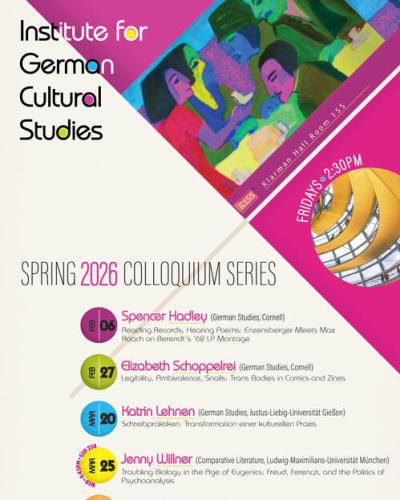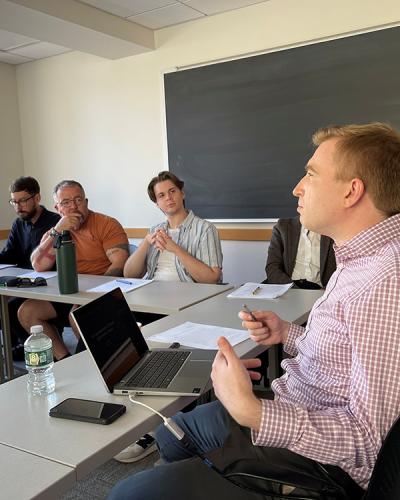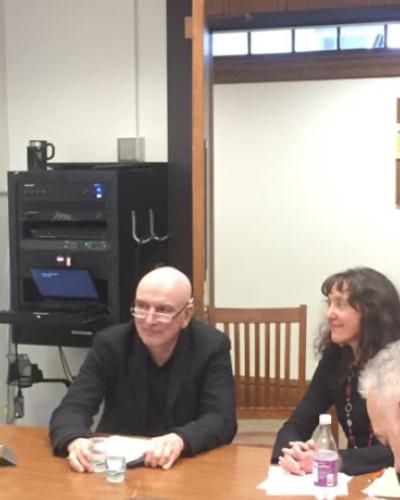On Friday, April 12, Uwe Wirth (University of Gießen) gave a colloquium presentation on the performative gestures of quotations deployed in the political campaign of the German party “Die Partei” (The Party). This political organization was founded in 2004 by editors of the satirical magazine Titanic and has been led by its former editor-in-chief, Martin Sonneborn, ever since.
Prof. Wirth’s project investigates the party’s strategies of satirical distancing from current political circumstances, as well as their connection to comedy, by drawing on Bertolt Brecht’s “Verfremdungseffekt” (estrangement effect). His analysis was framed through an exploration of the relation between Walter Benjamin’s notion of “pure fun” and our everyday, colloquial use of the term “fun.” The ensuing discussion centered around the blurry boundaries between satire and reality, as well as questions of what satire actually references when it is understood as a form of speech.
The following morning Professor Wirth met with graduate students for a more informal workshop on the unfolding of the so-called Böhmermann-Affäre, which involved the blistering satire of Turkish leader Recep Tayyip Erdoğan by comedian Jan Böhmermann in March 2016. The satire prompted Ankara to summon the German ambassador to take action against Böhmermann. Drawing on this case, workshop participants discussed specific definitions of satire as a form by drawing on readings by contemporary comedian Jesko Friedrich and by Kurt Tucholsky, Weimar Germany’s most celebrated satirist. The discussion then turned to what should count as a legitimate target for the satirist, especially in light of the controversial aspects of Böhmermann’s satire, as well as the role the audience is called to play in the process. (Sophia Léonard)





